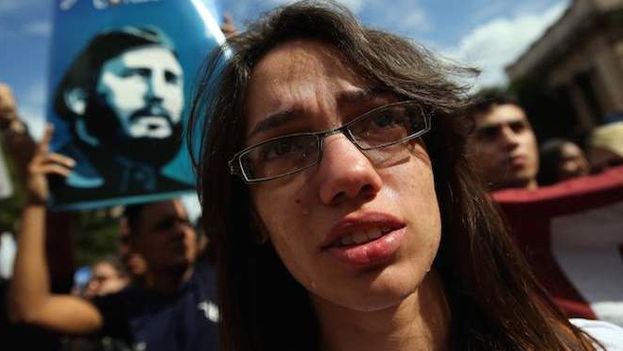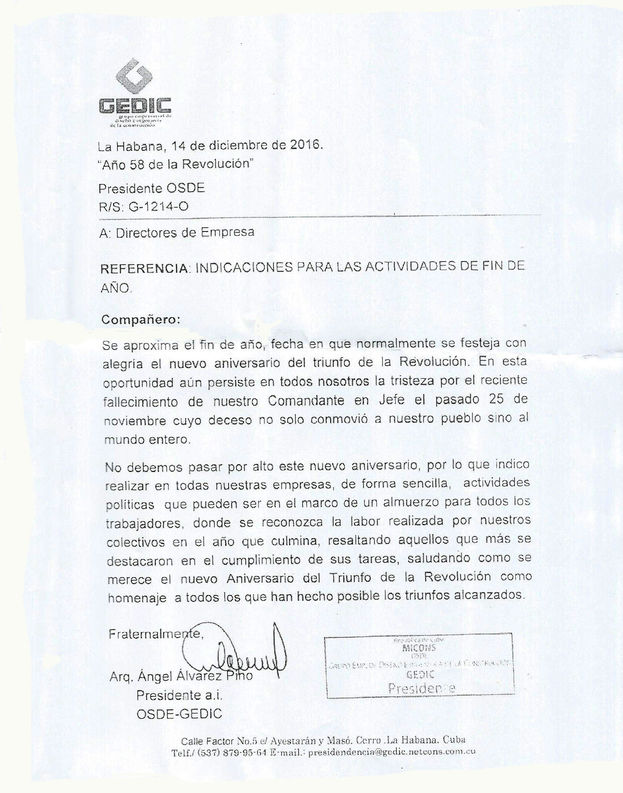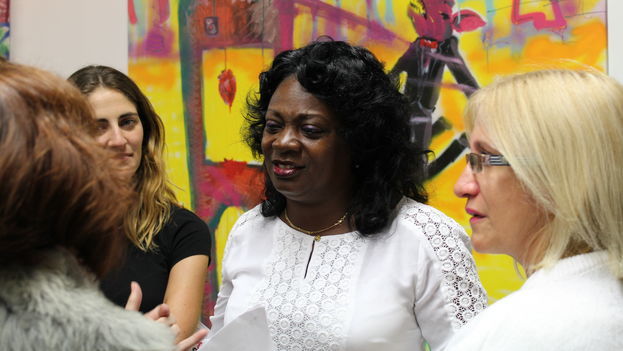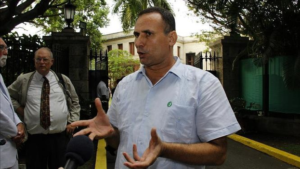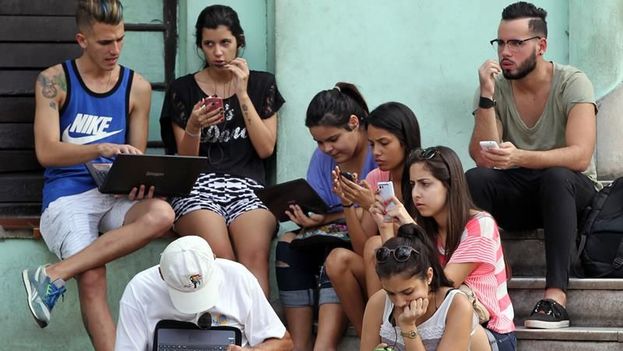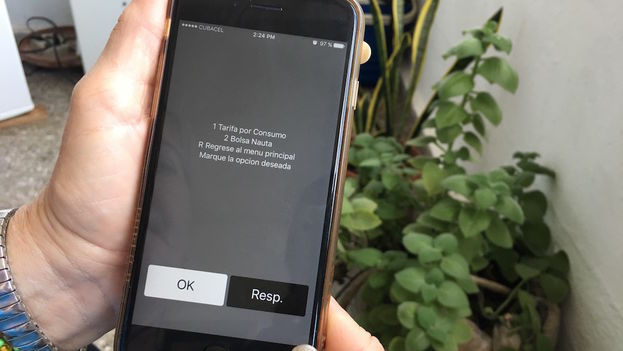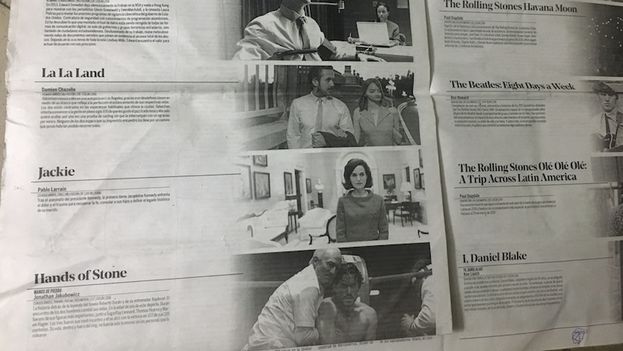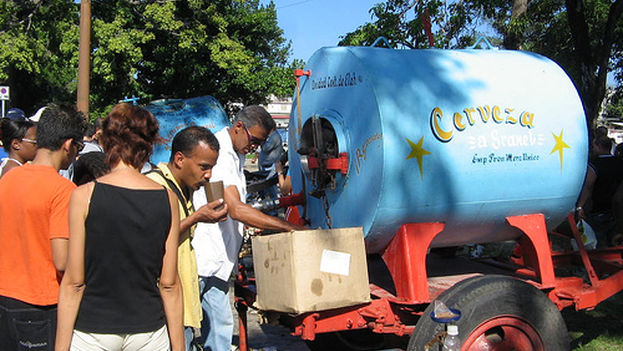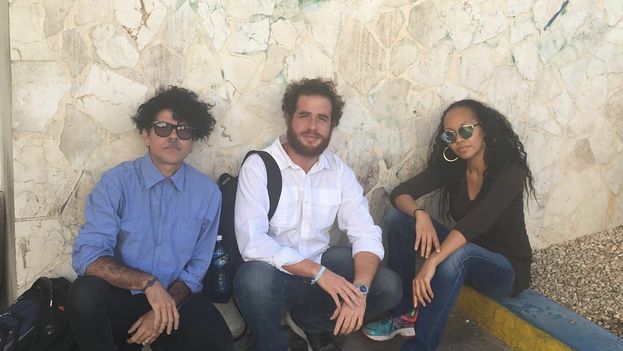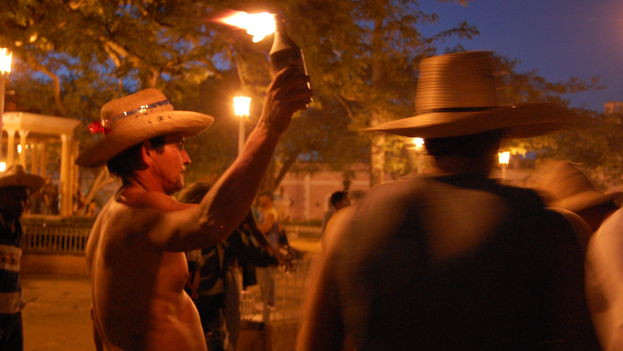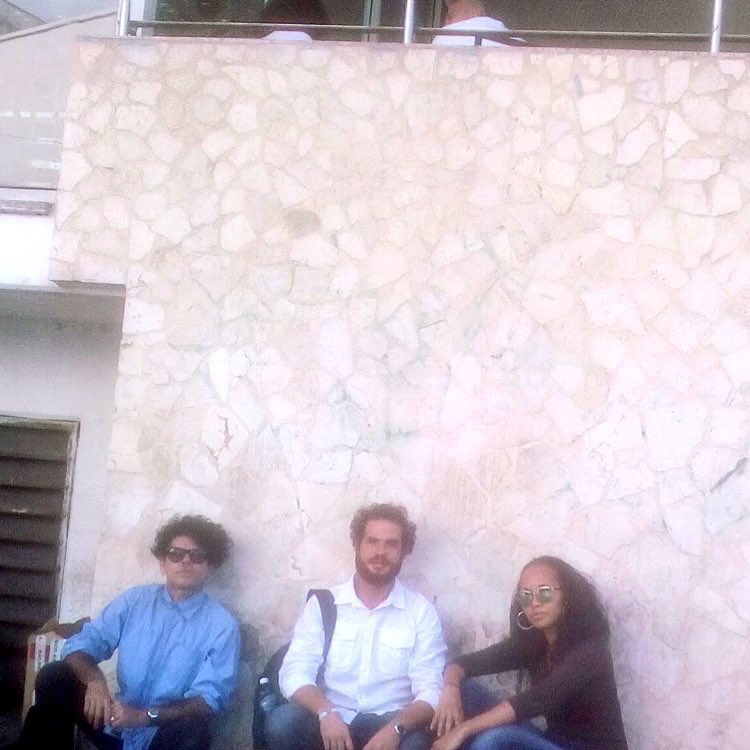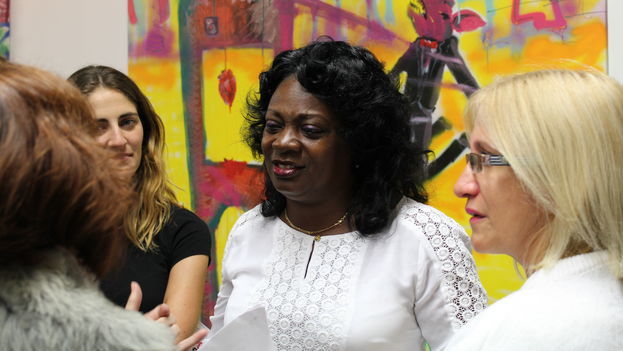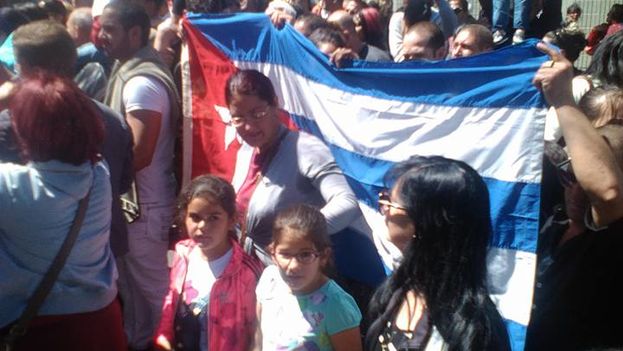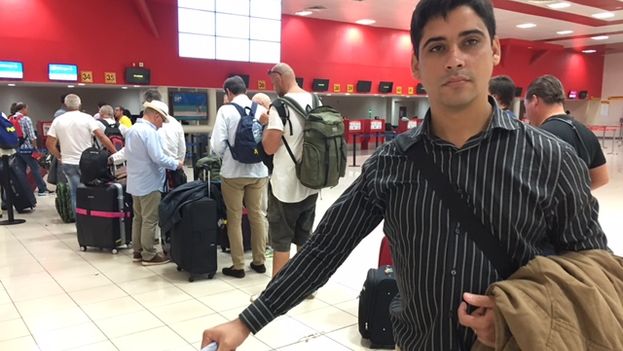Pánfilo’s program has not been broadcast for three weeks. In the video above Obama and Pánfilo appear in a ‘sketch’ recorded during the visit of the American president to the Island.
![]() 14ymedio, Marcelo Hernandez, Havana, 15 December 2016 — Celebrations postponed, revelry suspended and a call not to party in the street, is the reality for Cubans at this year’s end. The sobriety for the death of former President Fidel Castro has spread to television programming and the popular comedy show, “Living to Tell the Tale,” with the lead character Pánfilo, has not been broadcast for three weeks.
14ymedio, Marcelo Hernandez, Havana, 15 December 2016 — Celebrations postponed, revelry suspended and a call not to party in the street, is the reality for Cubans at this year’s end. The sobriety for the death of former President Fidel Castro has spread to television programming and the popular comedy show, “Living to Tell the Tale,” with the lead character Pánfilo, has not been broadcast for three weeks.
“We have received a circular with details on what can be broadcast and what cannot,” a specialist from the Cuban Institute of Radio and Television (ICRT) who preferred anonymity told 14ymedio. “The directions are clear: everything that is programmed has to be analyzed very carefully so as not to fall into frivolities,” he says. continue reading
Throughout the country, all the centers with cultural programming have held meetings to direct their workers to show austerity and moderation, but the calls to avoid celebrations extend beyond facilities for shows, concerts and movies.
Vivian, 42, works as a nurse in a polyclinic in the city of Santiago de Cuba. She explains that in a meeting she was in last week, they were ordered not to hold the gift exchange the medical staff had organized for the last week of December. “I already bought everything,” she said.
Pedry Roxana Rojo, a LGBT activist and worker at a branch of the Cuban Book Institute (ICL) in Caibarién, Villa Clara, published on her Facebook account a protest against the suspension of popular festivities traditionally held at the end of the year.
Rojo, who is also an independent reporter, complains about the secrecy of the official media about the postponement of the festivities. “They have suspended the holidays here this year by royal edict,” she quipped on the social network, telling14ymedio that the decision affects not only residents but also tourists coming to the area for those dates.
The parrandas of Remedios, along with other popular celebrations in the center of the island, have been postponed to January 6 and 7, according to a source from the Municipal Assembly of People’s Power speaking to this newspaper. It is the fourth time in the last six decades that these celebrations have been suppressed or had their dates changed.
The first cancellation of the parrandas occurred in December 1958, when guerrilla commander Camilo Cienfuegos arrived in the area with the so-called “invading column” that brought the combat actions from the Sierra Maestra to the west of the island.
In 1969, the parrandas were again suspended in the midst of the “decisive effort” promoted by Fidel Castro’s government to achieve a 10 million ton sugar harvest. All the end of year celebrations were postponed, but the harvest did not achieve the planned figures.
A decade later, an official directive moved all the popular celebrations of the country to the months of July and August. The parrandas were not allowed to be held in that December of 1979. The measures became more flexible with time and “the waters took their course,” says Moisés Luaces, a peasant from the area who remembers every interruption of his favorite festivities.
So far, official media have not called for the moderating of Christmas parties held inside homes, but many fear that the ruling party will urge Communist Party militants and members of the Committees for the Defense of the Revolution (CDR) to snitch on the most enthusiastic.

